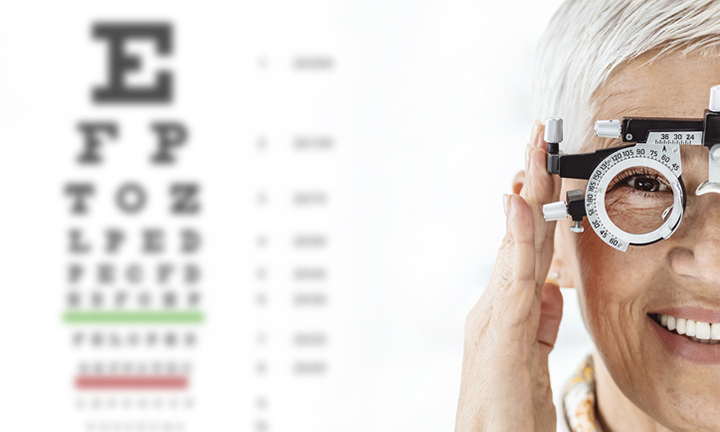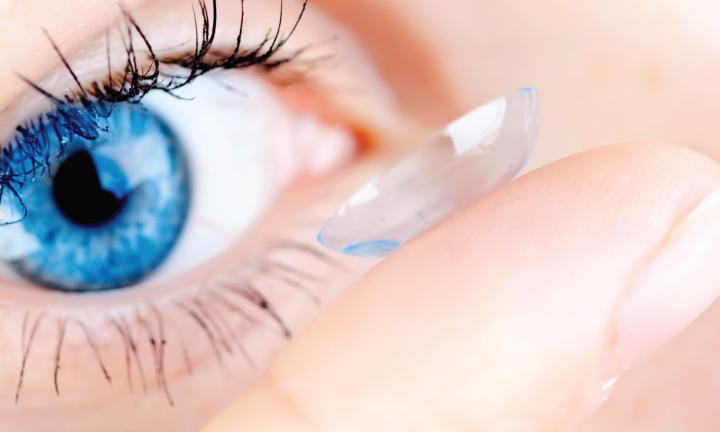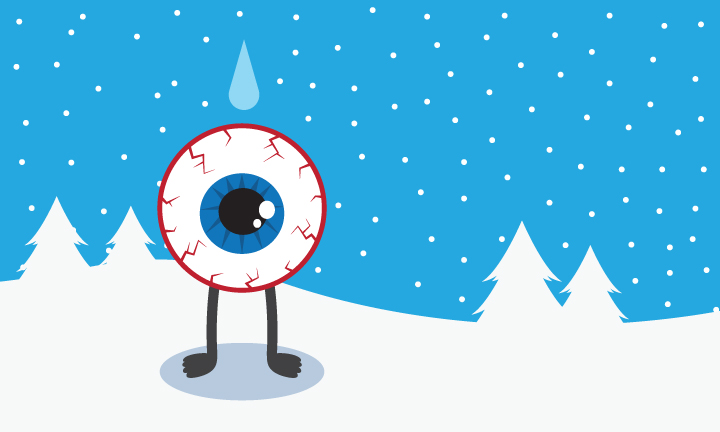TERMS OF SERVICE
1. Privacy
Please review our Privacy Policy to understand VSP's practices regarding Protected Health
Information
2. Copyright and Trademarks
The name Vision Service Plan and the registered logo(s), service mark(s), and trademark(s) owned by Vision Service Plan or any of its subsidiaries or affiliates, and the contents of this site may not be used in any advertising or publicity, or other use without the prior explicit written permission of Vision Service Plan (VSP). Visionworks is an affiliate of Vision Service Plan.
3. Disclaimer of Warranties and Limitations of Liability
VSP makes no representations about the suitability of this information for any purpose. It is provided "AS IS" without express or implied warranty, including, but not limited to, the implied warranties of merchantability, or fitness for a particular purpose. In no event shall VSP be liable for any special, indirect or consequential damages or any damages whatsoever resulting from loss of use, data or profits, whether in action in contract, negligence or other tort action, arising out of or in connection with the use or performance of this information.
4. Content
VSP has taken reasonable steps to ensure that the information on this site is accurate and timely. VSP, however, assumes no responsibility for any errors or omissions on this site or for the accuracy, truthfulness, or content of other documents that are referenced or linked to this site. Nor does VSP make any commitment to update the information contained herein. This publication and other documents are subject to change without notice. Health information content appearing is not intended as, and shall not be received or construed as patient-specific advice or a substitute for patient-specific advice.
5. Links
Links to documents outside of this publication are provided as a convenience and do not necessarily reflect the views or opinions of the staff or management of VSP. Links to such documents do not in any way suggest VSP's endorsement of any product or service specified therein. Links to documents outside of this publication may be found to contain offensive material or may further link to pages that may contain offensive material.
6. VSP'S EYE CARE INFORMATION
VSP's Eye Care Information provides basic eye care information to encourage overall eye health and wellness education. Members are encouraged to review benefit information on vsp.com.
7. VSP's Relationship With Third-Parties or Contractors
This site contains links to Third-Party (or Contractor) websites. VSP does not control or maintain Third-Party or Contractor sites. VSP does not endorse and is not responsible for the privacy practices of Third-Party or Contractor sites. Visitors should review the privacy policy of these sites to understand how they collect and use the information on their sites.
8. Confidentiality and Security
VSP members who enter personal information should know all communication between their computer and VSP's Web servers are encrypted using Transport Layer Security (TLS 1.2) technology. VSP's security software is the industry standard and among the best software available today for secure transactions.
Some features, such as VSP's Network Doctor Directory and the member's benefit information, relate directly to a member's personal information.
9. Use of E-Mail Subscription Information
Email subscription information that VSP collects may be used to personalize and target content of the emails you receive from VSP, enabling us to improve our service to you. As a subscriber, you may receive information from VSP, including VSP promotions, plan, benefit or educational information and/or surveys. We will not sell or use the information outside of VSP’s family of companies. We may provide general reports on email subscription usage but we will not share email addresses or any personal information that allows for identification of individuals except as described herein.
10. CONSENT TO CONTACT AND WIRELESS PHONE TERMS OF SERVICE
By submitting your phone number, and checking the box on the enrollment form, you are agreeing to receive autodialed calls, prerecorded messages and/or text messages from VSP®, its affiliates, and third parties acting on VSP’s behalf. Text and data charges may apply. Please check with your carrier. You can cancel mobile text messages any time by replying STOP to any message.
11. The Use of Cookies
Personal information collected and how it is used:
VSP collects anonymous, non-personal information about users of this site through temporary session cookies. Cookies are small, alphanumeric identifiers that are transferred to a computer's hard drive through the user's Web browser, which enables VSP's systems to recognize the browser and provide personalized features. Session cookies expire when you close your browser.
VSP will collect data about the user's activities that do not personally or directly identify the user when visiting our website. This information may include the content the user views, the date and time that the user views this content, the products the user purchases, or the user's location information associated with the user's IP address. We do not collect personal identifying information about a user, will not link to any protected health information, and will not target ads to a user based on sensitive health data.
In addition, VSP uses technologies such as cookies and pixels to keep track of your activities on our website and the websites of our third-party advertising companies ("our Advertising Partners"), and may use those cookies to serve you more relevant advertisements. We and our Advertising Partners' sites use session cookies and persistent cookies to make it easier for you to navigate and enhance the experience of our site, and to monitor and evaluate our website's operation and use.
Any data used to serve targeted advertisements is de–identified and is not used to personally or directly identify a user. We require third-parties, including Publishers, to provide notice and obtain appropriate consent, where required by applicable law.
How it is transferred to third-party companies:
VSP may work with Advertising Partners to help us recognize you and serve relevant advertisements to you when you visit a website or online service in their network. We may also work with Advertising Partners who help us recognize you across different devices in order to show you relevant advertisements. Our Advertising Partners may collect information about your activities on our website, our Advertisers' websites, and other websites or online services in their networks. We may also work with third-party companies to assist us with website analytics such as evaluating the use and operation of our website so that we can continue to enhance the website and our services.
How we use cookies and instructions on opting out of future campaigns:
We may use persistent cookies to keep track of your activities when you visit our website, and to serve you relevant advertisements. Our Advertising Partners may also place persistent cookies on your device when you visit our website or our Advertisers' websites in order to help us recognize you and serve relevant advertisements to you when you visit their website or online service or websites in their networks. VSP only collects information that does not personally or directly identify you via these cookies.
Most browsers can be set to reject all cookies. The Help portion of the toolbar on most browsers will tell a user how to prevent the browser from accepting new cookies, provide notification if new cookies are received, or disable cookies altogether.
Instructions on changing personal information (for users):
You may have the right to request access to and receive information about the personal information we maintain about you, update and correct inaccuracies in your personal information and have the information blocked or deleted, as appropriate. The right to access personal information may be limited in some circumstances by local law requirements. You also have the right to opt out, free of charge, from the processing of your personal information for marketing purposes. All requests for access, rectification, blocking and opting-out must be made in writing, signed, dated and mailed to VSP, Attn: Member Services, 3333 Quality Drive, Rancho Cordova, CA, 95670.
12. THE CHILDREN'S ONLINE PRIVACY PROTECTION ACT
VSP's website does not direct content to Minors and do not intend to collect personal information from Minors and therefore are not subject to the Children's Online Privacy Protection Act. If the User allow his/her minor child, or a child for whom User is a legal guardian (a "Minor"), to access and use the features, User agree that he/she will be solely responsible for: (a) the online conduct of such Minor; (b) monitoring such Minor's access to and use of the Service; and (c) the consequences of any use.
13. RESPONSE TIME
VSP responds to emails, electronic messages, and other communications as soon as reasonably practical. VSP's response time shall not exceed any maximum time period that may be specified by law.
14. Access and Interference
You agree that you will not use or attempt to use any feature within the Site for any commercial purpose. You agree that you will not use any robot, spider or other automatic device, process or means to access the Site. Nor shall you use any manual process to monitor or copy our web pages or the content contained thereon or for any other unauthorized purpose without our prior express written permission. You agree that you will not use any device, software or routine that interferes with the proper working of the Site nor shall you attempt to interfere with the proper working of the Site. You agree that you will not take any action that imposes an unreasonable or disproportionately large load on our infrastructure. You agree that you will not copy, reproduce, alter, modify, create derivative works, or publicly display any content (except for your own personal, non-commercial use) from the Site without the prior express permission of VSP.
15. Unauthorized Use of the Site
Any illegal or unauthorized use of the Site shall constitute a violation of these Terms of Use. You do not have permission to access the Site in any way that violates these Terms of Use. Illegal or unauthorized use of the Site includes, but is not limited to, unauthorized framing of or linking to the Site, or unauthorized use of any robot, spider or other automated process on the Site. It shall also be a violation of these Terms of Use: (a) for any individual (or group of individuals acting in concert) to request, more than 100 pages of content from Site in any twenty-four hour period (hereafter referred to as "Abusive Use").
16. SUSPECTED VIOLATION OF THESE TERMS OF USE OR LAW; INJUNCTIVE, EQUITABLE RELIEF, AND LIQUIDATED
DAMAGES
Violation(s) of these Terms of Use, including Unauthorized Entry or Unauthorized Use of the Site, may be investigated and appropriate legal action may be taken, including, without limitation, civil, criminal and/or injunctive redress. You understand and agree that in VSP's sole discretion, and without prior notice, VSP may terminate your access to the Site, remove any unauthorized User Content or exercise any other legal or equitable remedy available, if VSP believes that your conduct or the conduct of any person with whom VSP believes you act in concert, or the User Content you provide, violates or is inconsistent with these Terms or the law, or violates the rights of VSP or another user of the Site. You agree that monetary damages may not provide a sufficient remedy to VSP for violations of these Terms and you consent to the application of injunctive or other equitable relief for such violations.
You agree that Abusive Use of the Site, as defined above, causes damage and harm to VSP in the form of, among other things, impaired goodwill and increased expenses associated with responding to Abusive Use of the Site. You further agree that monetary damages for Abusive Use of the Site are difficult to ascertain and that proof of monetary damages for Abusive Use would be costly and inconvenient to calculate. Accordingly, you agree that injunctive or other equitable relief is warranted for Abusive Use. Therefore, you agree that if you, or others act in concert with you, alone or collectively request more than 100 pages of content from the Site in any twenty-four hour period, you, and those acting in concert with you, may be held jointly and severally liable for reasonable attorney's fees, expert witness fees and costs associated with injunctive or other equitable relief.
17. Additional Information
This website is owned by Vision Service Plan (VSP). Additional information regarding VSP may be requested by writing to VSP, Attn: Legal Division, 3333 Quality Drive, Rancho Cordova, CA, 95670.
If any changes are made to these Terms of Service, such changes will be promptly reflected in the terms set forth online.
Revised August 2022





